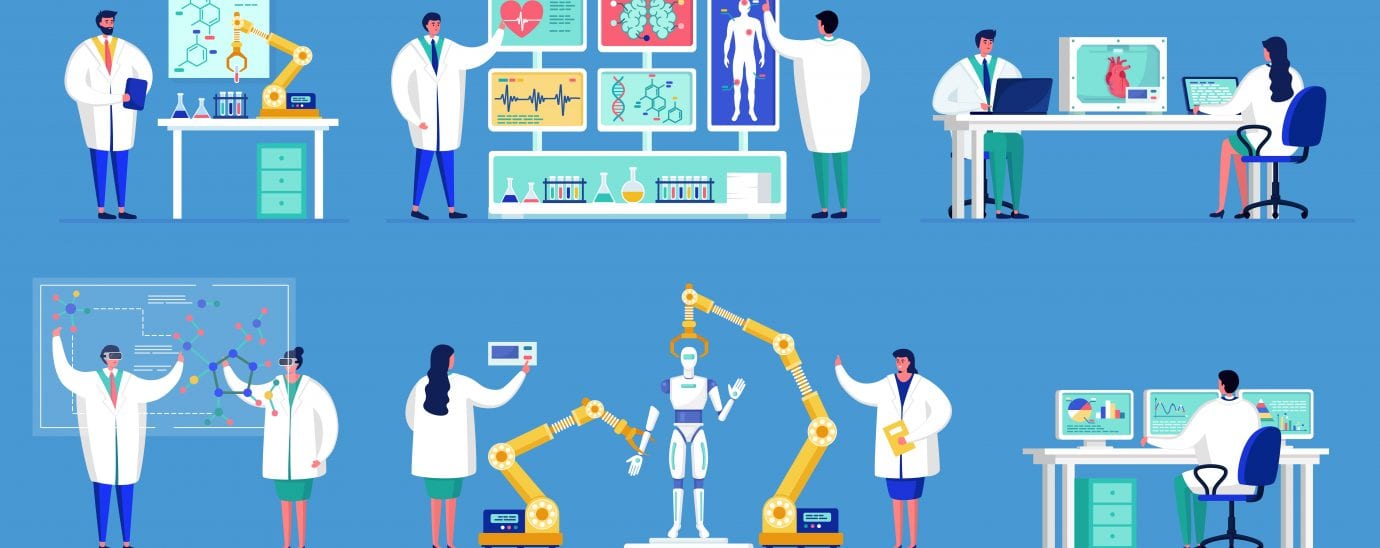IBM and Indian Institute of Science Launch innovation lab

Research work will be made accessible to the open-source community for wider adoption and acceleration of innovation in AI for Hybrid Cloud.
IBM as well as the Indian Institute of Science (IISc), one of India’s premier academic research study institutions, today introduced the launch of the IBM-IISc Hybrid Cloud lab to advance research study in crossbreed cloud modern technologies and drive development innovations in this field. Situated at the IISc university in Bengaluru, pupils, as well as professors throughout divisions of the institute, will certainly work along with IBM Research researchers to carry out a cutting-edge research study that can aid organisations in utilise real power of the crossbreed cloud by allowing much faster, smooth, as well as more secure adoption of crossbreed cloud & Artificial Intelligence.
An IBM Institute for Business Value (IBV) research on hybrid cloud exposes that the value originated from a hybrid, multi-cloud system modern technology and an operating version at scale is 2.5 times the value derived from a single system, solitary cloud. Therefore, businesses are increasingly purchasing crossbreed multi-cloud platform abilities to unlock worth and drive business improvement.
The IBM-IISc Hybrid Cloud laboratory will certainly combine a gifted community of scientists, professors, and trainees who are passionate about resolving a few of the toughest study challenges that business faces today in scaling the adoption of cloud computing across sectors. The laboratory will involve the academic community and the wider open-source area for broader fostering and the acceleration of innovation. The laboratory will certainly begin with the first collection of jobs, including professors and pupils from the IISc Departments of Computational and Data Sciences, Computer Science as well as Automation, and Supercomputing Education as well as Research Center, along with scientists from IBM Research’s India laboratory, on several areas, consisting of:
- Structure independent, self-healing computer systems that utilise AI to forecast emerging concerns, detect and heal faults while maximising accessibility, and minimise procedures prices.
- It is adopting microservices and also optimising cloud-native applications that leverage as well as breakthrough cloud-native innovations such as Kubernetes and also serverless. This will certainly enable ventures to bring substantial agility right into their IT solutions and drive brand-new cloud-enabled company models.
- Producing AI-based Information Management that allows business to govern, consume, attract insights, and develop value from data throughout a crossbreed impact of side, cloud, and varied data resources.
Establishing AI systems that can evaluate human and machine languages, with developments in AI for Code, to version and optimise computer systems. This will be essential to enabling technologies as well as automation in the areas discussed over.
In addition to IBM’s dedication to foster innovations that make it possible for much faster adoption of Hybrid Cloud technology, the lab will certainly take an open-access strategy by collectively presenting the research study searchings for in premier conferences, holding workshops, and also launching an open-source product to the neighbourhood. It will also offer IISc trainees exposure to industry-driven problem statements and mentorship from IBM researchers on the study and open resource. The lab will act as a hub for promoting the exchange of suggestions, not just for the two establishments but also for the area’s research and sector community.
Professor Yogesh Simmhan, Associate Professor, will co-chair the Department of Computational and Data Sciences Laboratory at the Indian Institute of Science (IISc), Bengaluru, and Dr Amith Singhee, Senior Manager as well as Senior Technical Staff Member at IBM Research, India. The brand-new lab builds on a solid 15-year relationship between IBM Research and IISc on expertise exchange with guest lectures, collaboration in the open scientific research program, internship opportunities, and a lot more. For example, in 2020, IISc and IBM Research performed the ACM Winter School on Hybrid Cloud that supplied trainees (at the postgraduate degree and over) a deep understanding of the foundations of cloud computing. IBM Research also funds a STEM education program at IISc for senior high school students.
Gargi Dasgupta, Director, IBM Research India said, “The IBM – IISc lab will bring together two leading research organizations in industry and academia to create an ecosystem for Hybrid Cloud research, in India, for India and the world. IISc has a strong record in research areas like Hybrid Cloud, AI, Security, which compliments the expertise of IBM Research, and we are excited to collaborate with IISc to create innovative, industry-relevant solutions. Our Hybrid Cloud platform is Open, and we will jointly develop open-source software that provides interoperability, portability, and security that can be easily accessible to the vast community of developers to accelerate innovation.”
READ MORE:
- Biometric authentication: the good, the bad and the ugly
- You’ve had a breach – how do you successfully roll out an emergency patch?
- How to successfully reopen your office in a post-Covid-19 world
- Common migration pitfalls and how to avoid them
Navakanta Bhat, Dean, Division of Interdisciplinary Sciences, IISc Bengaluru said,
“IISc is very grateful to IBM for partnering with us on this ambitious initiative to establish this state-of-the-art lab on campus. We are particularly excited about making the joint research findings open-source and accessible to a wide community which will significantly accelerate innovation in the emerging areas of AI and Hybrid Cloud. Such industry-academia partnerships are key to boosting the impact of research, and we are proud to work together with a technology leader like IBM.”
For more news from Top Business Tech, don’t forget to subscribe to our daily bulletin!
